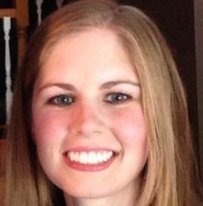New Study Proves Vast Benefits of Higher Education for Inmates

“Regardless of what you think about inmates, what do you want for your community? You have to understand that they all come back eventually. If you don’t rehabilitate them, how are they going to successfully rejoin society?”
A new study from the RAND Corporation (RAND) shows the importance of giving inmates access to higher education. Among the many benefits of obtaining some form of education while in prison are reduced recidivism and increased employment opportunities upon reentry into society.
College Education Programs Reduce the Recidivism Rate
According to the Vera Institute of Justice (Vera), multiple studies have shown that prisoners who undergo some sort of higher education while in prison are less likely to return to prison after their release.
“Studies show that incarcerated people who participate in college education programs are 43% less likely to recidivate, and that facilities offering these programs have fewer incidents of violence,” Vera states on the website for their College in Prison project.
The RAND Corporation (RAND) recently conducted a study researching years of statistics on the outcomes of correctional education. The study found that education is effective, regardless of the prisoners’ education level.
The California Institution for Men, a prison less than 40 miles east of Los Angeles and part of RAND’s study, has several classrooms where many prisoners spend their afternoons learning a variety of subjects. One particular inmate, Donald Daniels, decided he wanted to turn his life around.
“I’m tired of society looking down at me,” Daniels told RAND. “I knew that I had to begin doing something different with my life. What I had been doing wasn’t working. Education was the peek in the door that opened up my mind.”
More Access to Education in Prison Could Lead to Higher Employment Rates
In addition to lowering the recidivism rate, education opens more employment opportunities for former prisoners.
Lois Davis, RAND’s senior policy researcher and leader of the study, said, “It really, for the first time, dispelled the myths about whether or not education helps inmates when they get out. Education is, by far, such a clear winner.”
“Regardless of what you think about inmates, what do you want for your community?” she continued. “You have to understand that they all come back eventually. If you don’t rehabilitate them, how are they going to successfully rejoin society?”
Research has proven that those who receive higher education while incarcerated reenter society with qualifications and skills to help them obtain better employment opportunities — and access to increased wages. However, former prisoners who have not received any post-secondary education while in prison are typically not prepared to pursue employment and often find themselves incarcerated again at some point.
According to Vera, the effects of not having access to education in prison are far-reaching. “The corrosive effects are more than individual: They extend into the larger economy, reducing the size of local skilled labor pools and swelling fiscal burdens for states’ correctional, public safety and social welfare systems.”
Education Has Lasting Effects on Former Prisoners
More often than not, those who received some form of higher education while incarcerated use what they have learned to make a difference in society.
According to RAND’s study, Glenn E. Martin, a former prisoner who obtained his associate’s degree in a New York prison while serving a six-year term for armed robbery, founded an organization called JustLeadershipUSA after his release.
Now a national spokesman for the prison reform group that endeavors to cut the national incarceration rate in half, Martin told RAND: “The current system works for no one. Government has a responsibility to do more of what works, and less of what doesn’t.”
Another one of the numerous success stories is that of Marilyn Barnes, a woman who was a drug addict and was caught in the prison revolving door for 20 years. With the help of Root & Rebound, a reentry advocacy center for people and communities affected by incarceration, Barnes earned her master’s degree in education, wrote a book and founded a non-profit called Because Black Is Still Beautiful to help others “break free from the cycle of recidivism.”
Sara Spencer, who teaches adult education classes at the California Institution for Men, believes that education can change people’s lives. She told RAND that her “job is to help empower” the prisoners she has the privilege of teaching every day.











